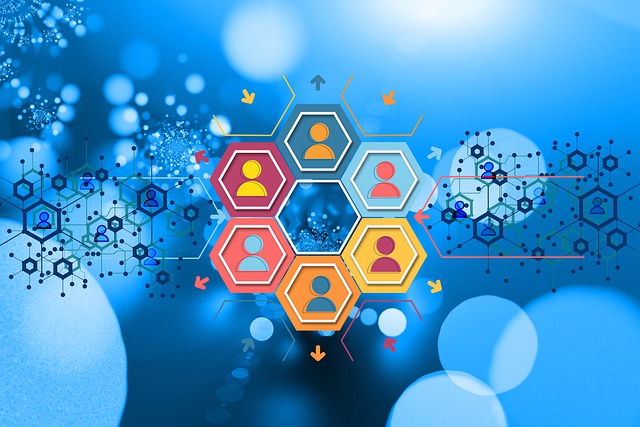Health Informatics Specialist: Skills,Salary,Roles and Responsibilities in India

What is a Health Informatics Specialist?
A health informatics specialist is a professional tasked with implementing technology strategically within a healthcare setting to enhance the quality of treatment and support data collection efforts. Their responsibilities encompass assessing the existing operations of a healthcare facility and deploying computational systems that directly or indirectly contribute to improving a patient’s quality of life.
In practical terms, these specialists play a pivotal role in identifying where technology can be most effectively integrated to optimise healthcare processes. This involves a thorough evaluation of the current state of operations, understanding the workflows, and pinpointing areas where technology can make a meaningful impact.
Once the assessment is complete, health informatics specialists are responsible for the deployment and management of computational systems. This can range from the implementation of electronic health records (EHR) to the integration of advanced technologies like artificial intelligence and machine learning. The objective is to streamline data management, enhance decision-making processes, and ultimately improve the overall quality of patient care.
Roles and Responsibilities Of Health Informatics Specialist
Health informatics specialists play a crucial role at the intersection of healthcare and technology, contributing to the efficient management of health information. Since health informatics is a broad field, the exact job duties will depend on the specific job title. You might take on responsibilities such as
- Managing patient data
- Creating new programs for tracking that data
- Implementing systems to make sure patient communication is effective
- Training clinical staff on technology and programs
- Ensuring the privacy of patient data during communication
Educational Background
- Required Degrees and Certifications
Becoming a health informatics specialist typically requires a bachelor’s or master’s degree in health informatics, information technology, or a related field. Certifications from recognized organisations, such as the American Health Information Management Association (AHIMA) or the Healthcare Information and Management Systems Society (HIMSS), can further enhance one’s credentials.
- Specialised Training
Given the rapidly evolving nature of healthcare technology, health informatics specialists often undergo specialized training to stay updated on the latest advancements. Continuous learning is essential to adapt to new technologies and maintain proficiency in their roles.
Skills Required For Health Informatics Specialist
Technical Skills
- Computer Programming
In the realm of health informatics, some specialists take on the role of designing computer programs that automate the application of statistical analysis techniques to clinical data. This innovative approach allows them to extract insights that would be challenging to uncover without the assistance of cutting-edge technologies, including artificial intelligence. Courses like “Practical Statistics and Programming Using R” and “Introduction to Python for Health Informatics” offered by Pitt MSHI (Master of Science in Health Informatics) are instrumental in equipping aspiring informaticists with the programming skills necessary for the technical heavy lifting in the informatics field.
- Data Analytics
The role of data analytics in healthcare is vast and plays an important role in shaping informed decision-making within the field of health informatics. Informaticists leverage descriptive, predictive, and prescriptive analytics to unravel patterns, forecast trends, and tackle complex problems..
- HealthCare IT
Health informatics specialists are integral players in the healthcare ecosystem, closely intertwined with health information technology (HIT). Their expertise extends to managing various technological tools, including electronic health records (EHR), clinical health data systems, and a spectrum of data generated by modern technologies such as telemedicine, wearable health devices, electronic prescription services, patient portals, and consumer healthcare apps.
- Management
Senior and executive positions in health informatics, such as the Director of Health Informatics or Chief Medical Information Officer (CMIO), demand a unique blend of expertise in informatics and robust business management skills. Professionals in these roles find themselves overseeing teams of informatics specialists and spearheading strategic project management initiatives.
Soft Skills
- Analytical Thinking Skills
The role of health informatics specialists is intricately tied to working with and analysing complex data sets. This requires not only technical competency but also a profound understanding of how trends and patterns within these data sets can drive informed decision-making. Informaticists employ analytical thinking skills each time they extract insights from electronic medical records or insurance claim data, skillfully weaving these insights into a compelling narrative for stakeholders.
- Communication Skills
Research shows that effective communication has a positive effect on organisational performance. Health informatics specialists bridge the gap between highly technical clinical data analysis and health care system leadership. Strong communication skills let professionals in this field break down complex data concepts to an audience who may not be technologically savvy. Informaticists also liaise between providers, IT staff and health care administration audiences, using data to connect those groups to serve common goals.
Health Informatics Specialist Salary 2024
HealthCare Informatics Salary Range
The salary range for health informatics professionals is very wide. According to Glassdoor, the total annual pay for registered health information technicians (RHIT) is $37,657 a year [3]. But, other health informatics jobs can make more than twice that much. For example, Glassdoor pegs the total annual salary for Informatics directors at $129,837 a year
Health Informatics Jobs and Salaries
Health informatics consists of many different jobs and salaries.
Get your data results fast and accelerate your business performance with the insights you need today.



